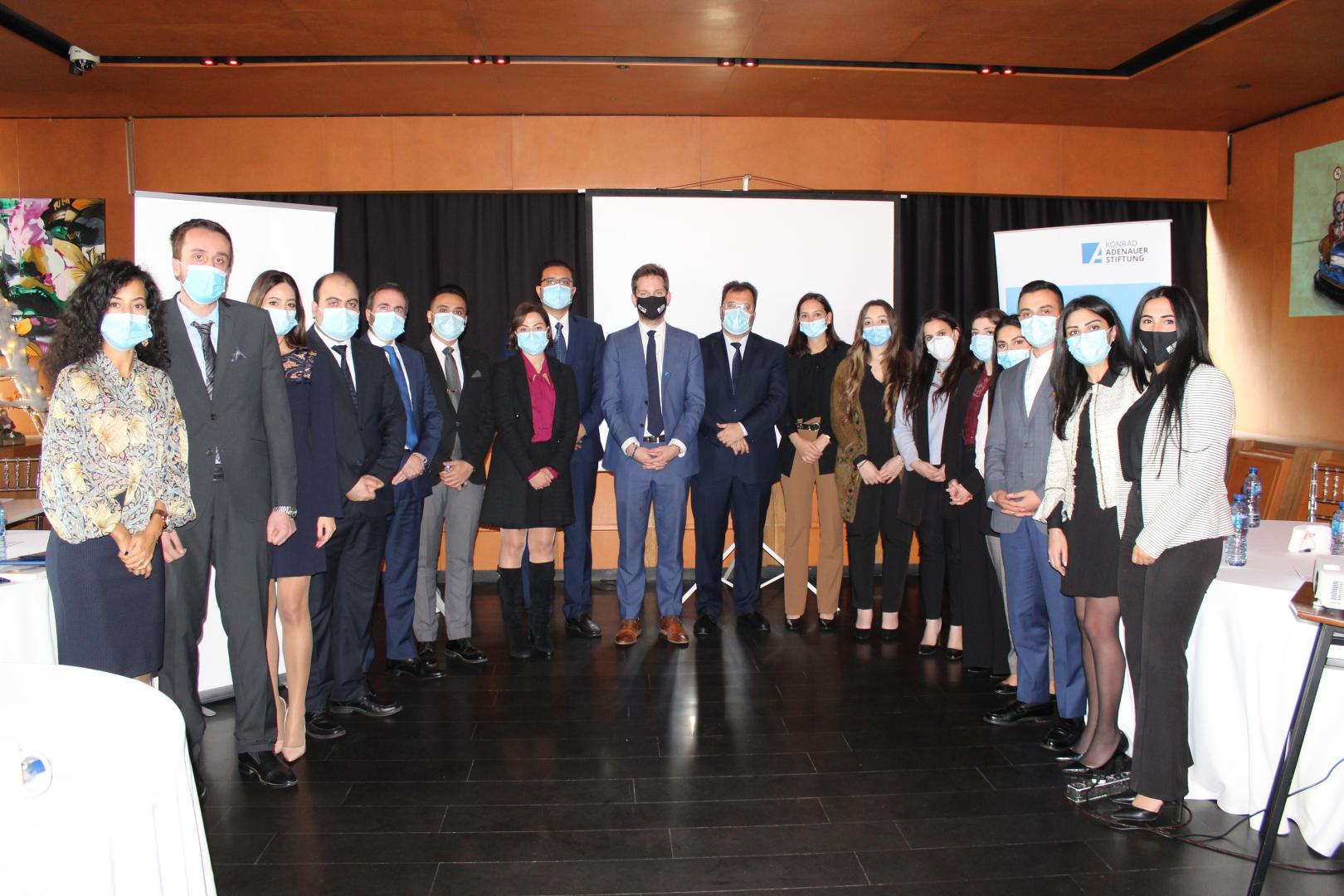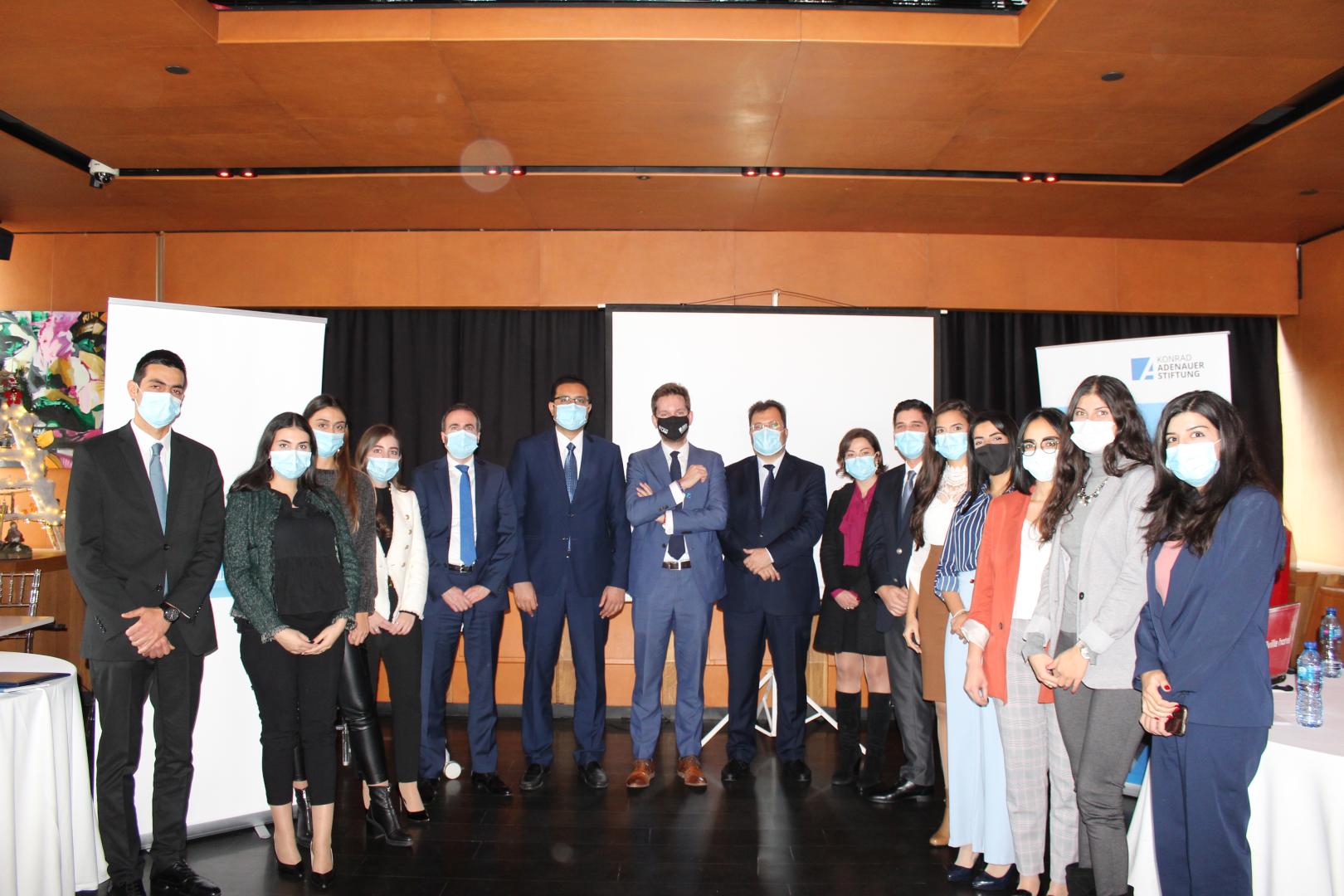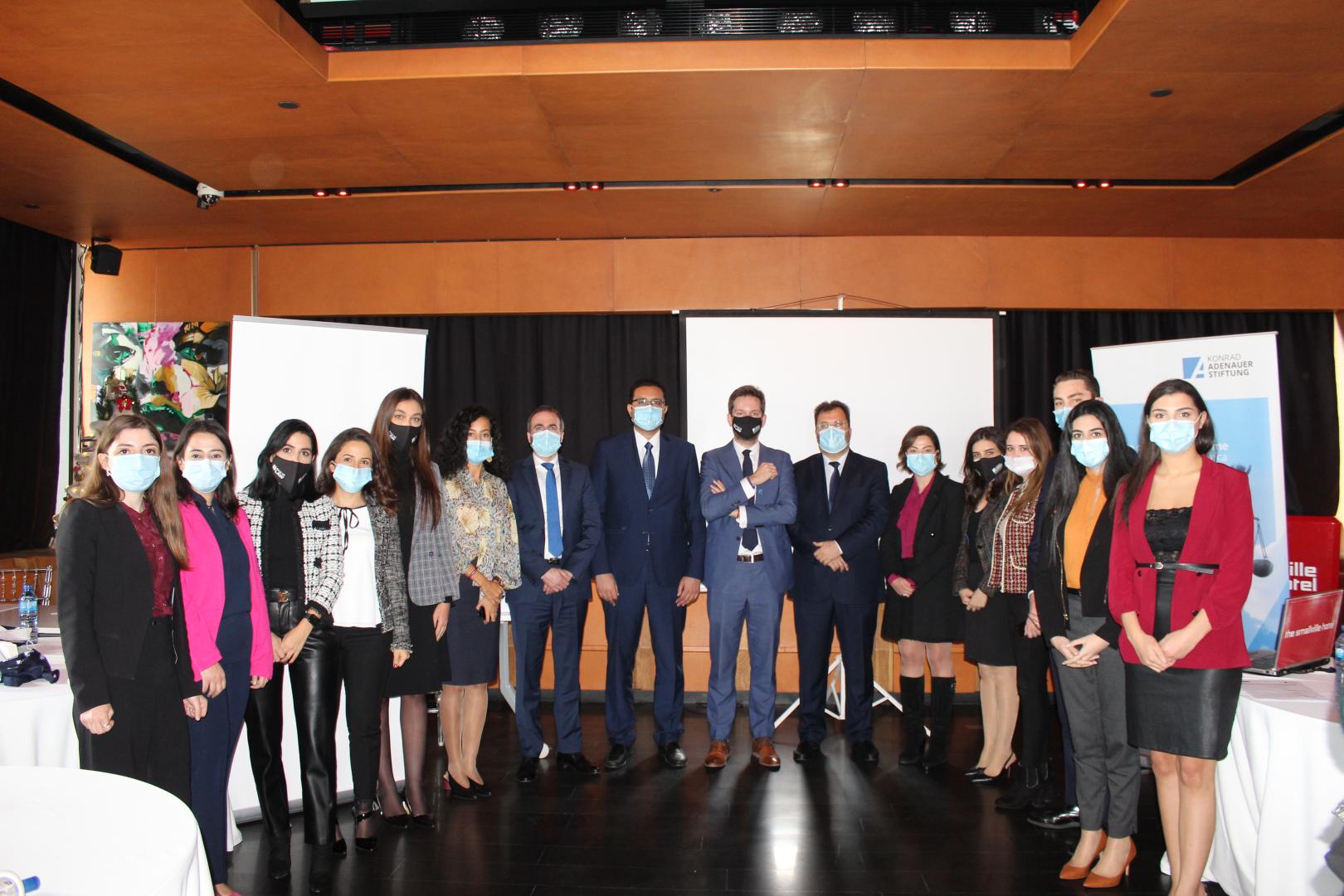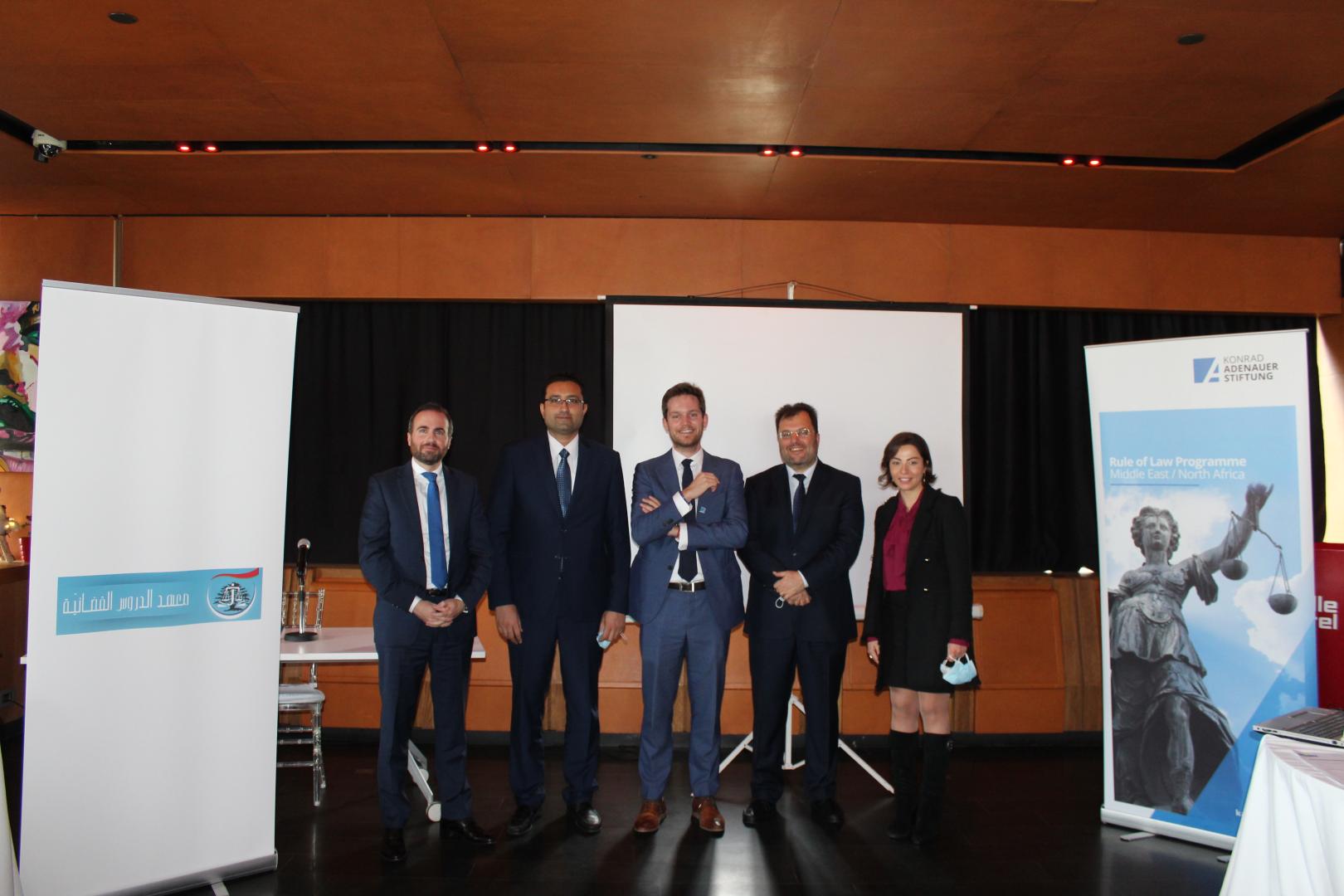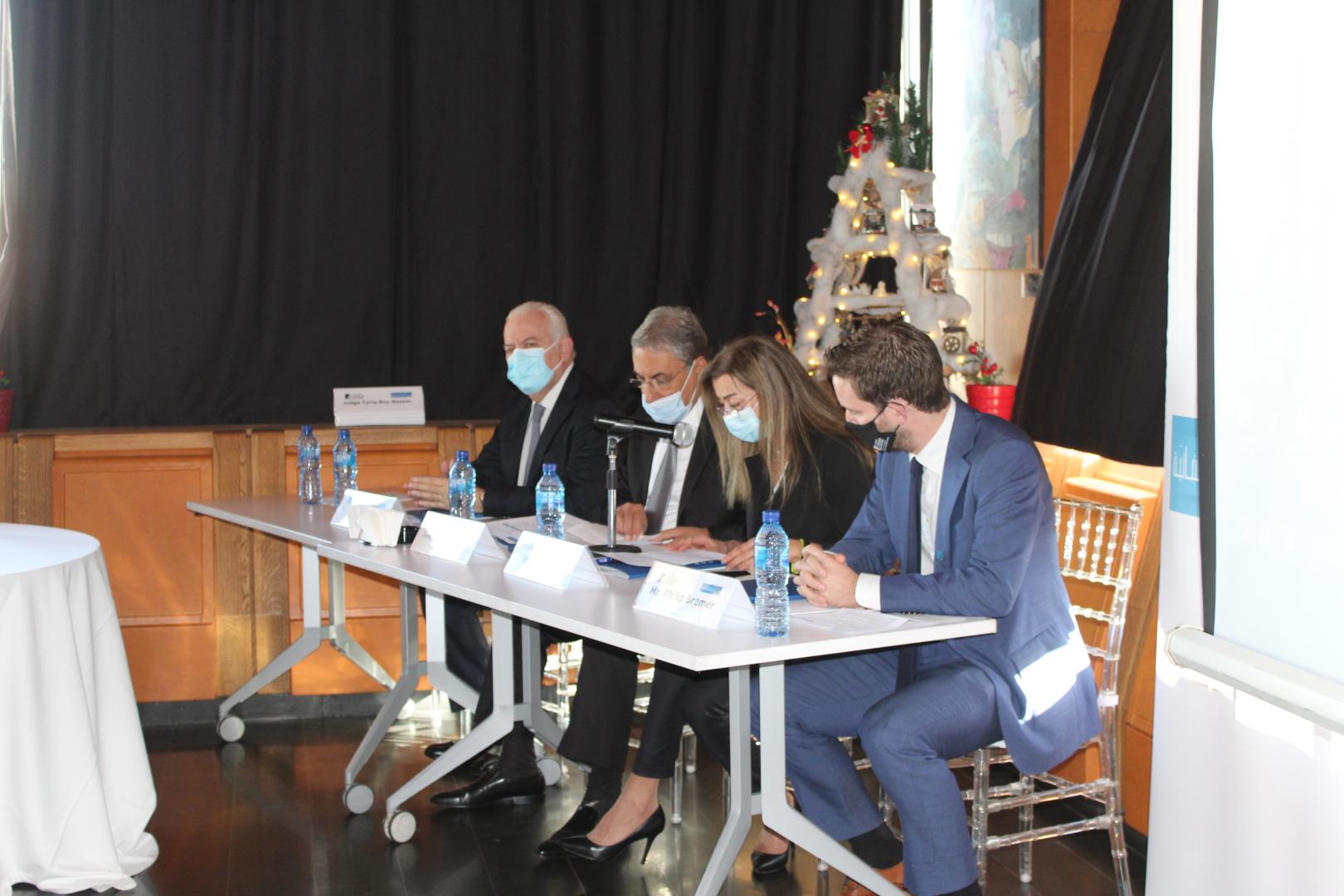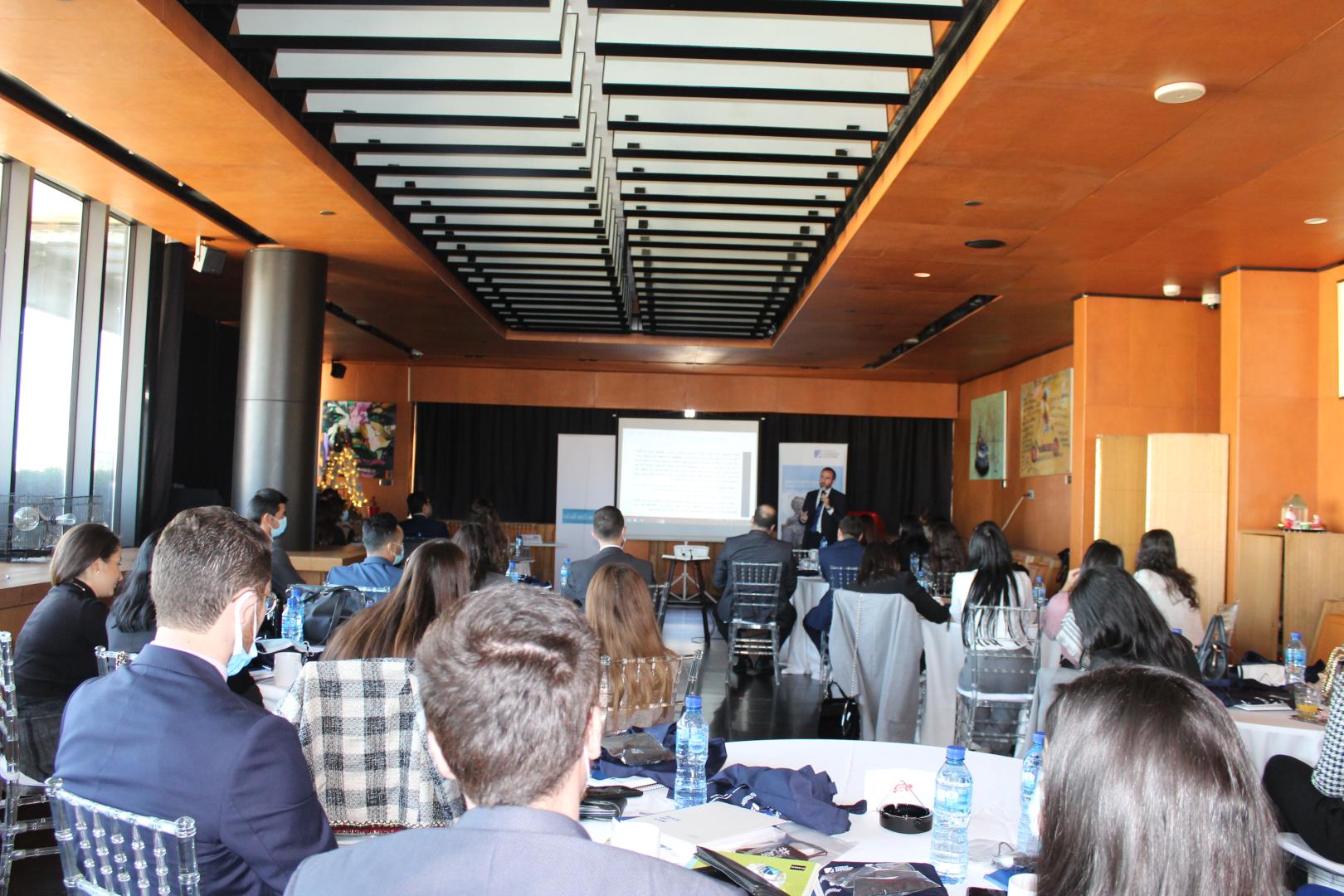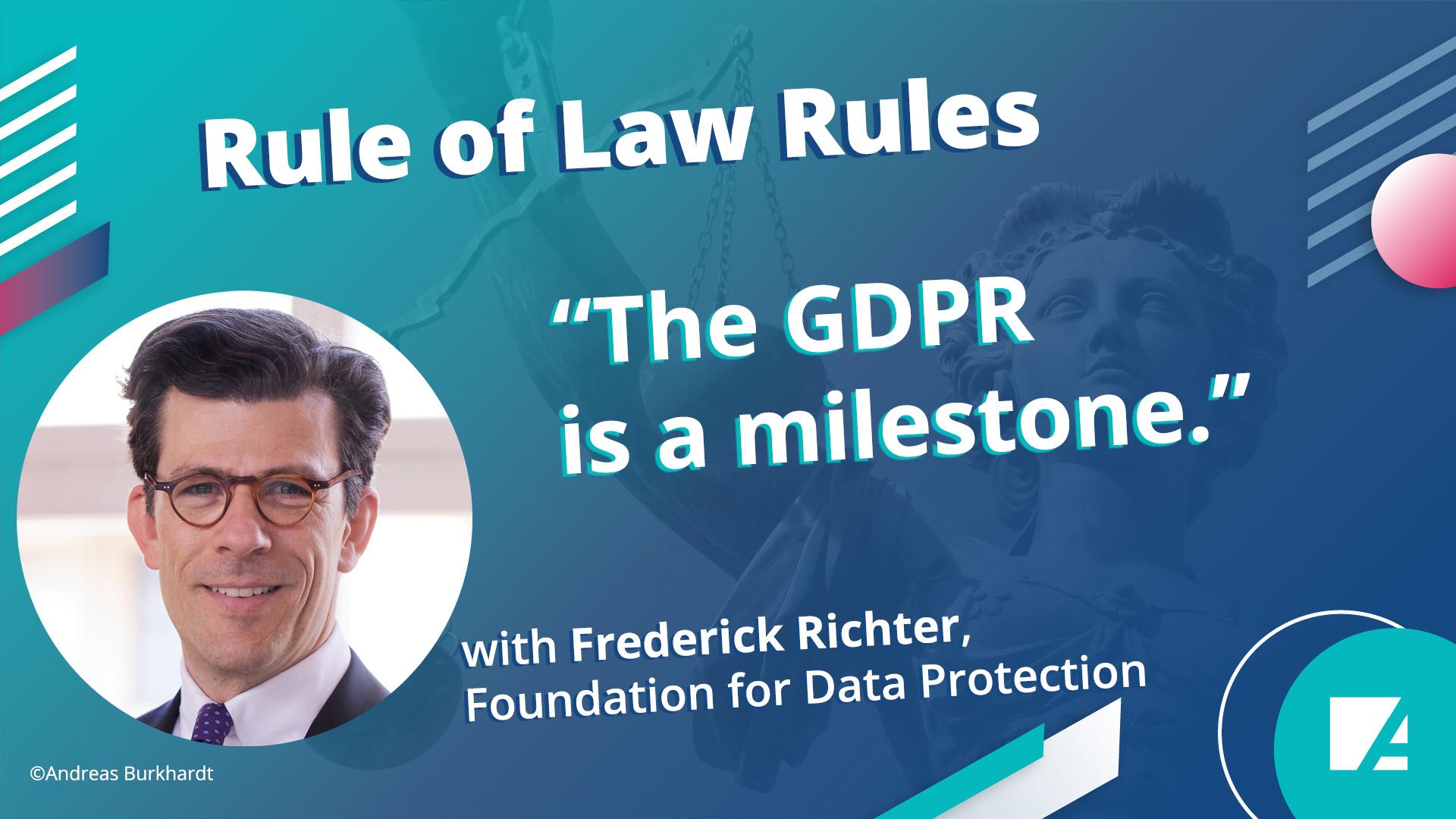The President of the Judicial Studies Institute, Judge Nada Dakrub, started the opening remarks by revealing to the Judges in Training that one of the institute's goals and strategies is to be open to all cooperation aimed at expanding the judge's legal knowledge. Thus, this collaboration with KAS arose to keep them up to date on new topics in terms of regulatory legislation and to strengthen their understanding of legislative texts by transferring the expertise to improve their skills and to develop their theoretical and practical studies.
Following that, Mr. Philipp Bremer, Director of the Konrad-Adenauer-Stiftung (KAS) Rule of Law Programme Middle East & North Africa, spoke about the vital and important role that judges play in the structure of a modern democracy, an independent judiciary, and in defending the rule of law without interference or pressure. Mr. Bremer further emphasized that, in these severe circumstances, we must all remain positive, driven, and alert; and ensure that all efforts to uphold the rule of law in this country are not in vain and that those rights be safeguarded for the benefit of the Lebanese people.
H.E. Minister of Justice, Judge Henry Khoury, delivered the closing remarks, emphasizing the importance of such workshop topics in terms of anti-corruption efforts and the current crises in the country.
The opening remarks were proceeded by an introductory discussion session with Judge Souheil Abboud, President of the Supreme Judicial Council, and the Judges in Training.
The sessions were then as follows during the two days:
Judge Rana Akoum conducted the first training session, which focused on the Anti-Corruption and Illicit Enrichment Law and key legislation such as the United Nations Convention Against Corruption and the National Anti-Corruption Strategy; furthermore, the judicial system to combat corruption as well as a comparison between the old and current laws of declaration of financial disclosure, interests and punishment of Illicit enrichment.
Judge Tarek Bou Nassar led the second training session of the first day, in which he discussed the procedures and cases under the Anti-Corruption and Illicit Enrichment Law.
The second day also encountered two sessions. The first one, presented by Judge Yahya Ghaboura, dealt with the international framework of the Crime of Human Trafficking as well as the legal framework on a national and international level; the United Nations Convention against Transnational Organized Crime; the Protocol to Prevent, Suppress and Punish Trafficking in Persons, especially Women and Children, supplementing the United Nations Convention against Transnational Organized Crime. Additionally, he focused on internal legislation (Law No. 164/2011) on both a criminalization (Penal Code) and protection level (the Code of Criminal Procedure).
The second session was led by Judge Fadi El Oneissi, who discussed the importance and significance of the crime, as well as the causes and types of human trafficking, such as trafficking in women, child trafficking, labor trafficking, and trafficking in human organs. Finally, statistics from Lebanon and throughout the world were provided, as well as case studies for discussion.
At the end of the workshop, both the expert judges and the Judges in Training received certificates from the Konrad-Adenauer-Stiftung (KAS) Rule of Law Programme Middle East & North Africa and the Judicial Studies Institute at the Ministry of Justice in Lebanon.



